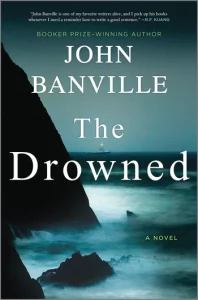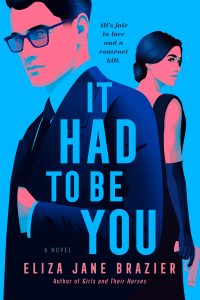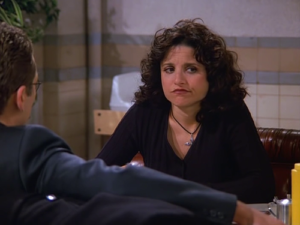★★★★★
Celebrated author John Banville’s latest novel is a slow-burn mystery simmering with secrets, fears, and sins. Almost everyone in it seems a bit off in one way or another, including Detective Inspector Strafford. He’s a fascinating character: brooding, alienated from himself, his feelings, and even the woman he thinks he loves. “It sometimes appeared to Strafford that his life was a series of tableaux as elaborate, studied and unreal as a stage performance at Versailles at the height of the reign of the Sun King.”
The mystery opens in the 1950s with the discovery of a flashy car in the middle of a rural Irish field and a peculiarly calm man claiming that he and his wife have argued, she’s run off and he’s been looking for her. Has she had an accident, committed suicide, or just abandoned him?
At a nearby house where the police are called, the couple renting the place for a week seem to know this man but pretend they don’t. When the local cop shows up, he’s drunk, which adds to the peculiar buzz underlying every word and glance of these people. The mystery fades in and out of view from that point, seeming to parallel a previous mystery Strafford and his pathologist colleague Quirke were involved in. At the end of the novel we find out why that other case lingers here.
Along the way we dive into and out of Strafford’s ambivalent love life and alcoholic Quirke’s profound loneliness. This is where some of the book’s best, most moving prose can be found. And writers who want to polish their dialogue can take a master class from Banville in Chapter 5 where Strafford and his estranged wife have a long conversation that’s quietly nasty and deeply unsettling for both of them. It’s a scene I read twice because it’s so finely crafted.
There’s also a dazzling, deeply moving foray into the depths of mourning and loneliness which details how badly Quirke is badly coping with the death of his wife. Banville paints the portrait with elegant, moving brush stokes: Quirke feels as “if nothing had happened. The blunt, unceasing continuity of things, baffled him, affronted him. It was a scandal, the entire indifferent business of being alive.”
Equally as fascinating for this American reader, there are many smarky interactions where people recognize with great accuracy each other’s origins and religion based on their accents, something that does not have the charm of anything Henry Higgins sings in My Fair Lady.
Adding to the overall melancholy of the book is the deft description of scenery and the weather which is grim whether the summer has gone on too long or winter rain is pelting down. Physical and emotional atmosphere is everything in this novel. The Booker Prize-winner is a masterful writer about anything that has been lost. Here’s how colleagues feel after their boss has died:
“Yet his going left a vast and unfillable absence. It was as if a sacred idol, present for so long that even the attendant priests had ceased to take much notice of it, had been stolen by some sacrilegious vandal, and suddenly the rgeat, glittering temple was reduced to bricks and mortar, and nothing remained of its former sanctity, save a wisp of incense and a gleam of light through one corner of a stained-glass window.”
Lev Raphael is the former crime fiction reviewer for The Detroit Free Press and has reviewed for The Washington Post as well as several Michigan radio stations, one of which aired his interview show. His guests there included Doris Kearns Goodwin, Salman Rushdie, Julian Barnes, and Erica Jong.







